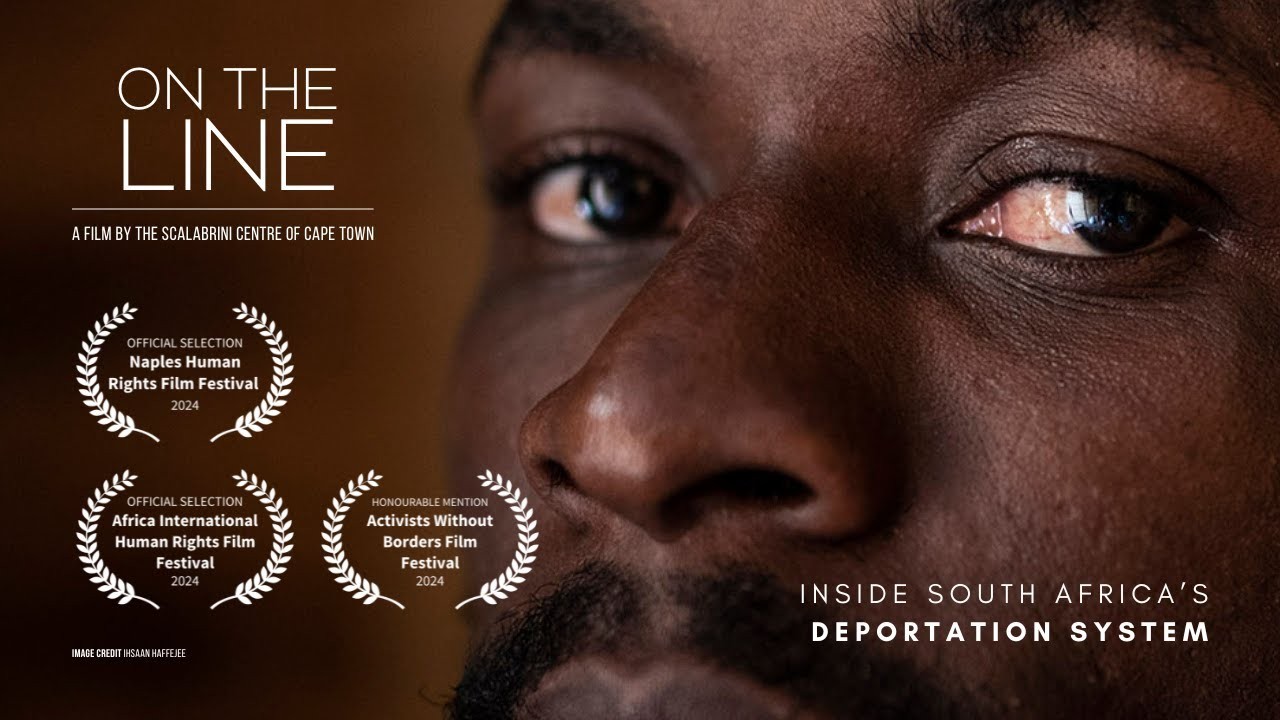
"On the line" a documentary on alternatives to detention and deportation
Exploring alternatives to immigration detention and deportation is a key topic in the current conversation about forced human mobility in the continent. Are there viable alternatives to South Africa’s immigration detention and deportation system? This was the central question examined at the launch of the Scalabrini Centre of Cape Town’s new documentary, On The Line, on August 28th at Cape Town’s Labia Theatre.
The event gathered around eighty individuals from refugee-led organisations, civil society, academia, and media to delve into the complexities of the deportation system and explore the possibilities for change.
Watching this documentary is a deep dive into South Africa’s deportation system. On The Line sheds light on South Africa’s deportation system through interviews with experts, including representatives from the Casual Workers Advice Office, Lawyers for Human Rights, and Médecins Sans Frontières. The documentary explores the societal impact of a system that struggles to meet its objectives and profiles Gloria, a teacher forced to leave Zimbabwe, and “Mr X,” a former immigration official who shares exclusive insights into the system’s inefficiencies.
Filmed in Cape Town, Johannesburg, and Musina, the documentary exposes the deportation system as costly, ineffective, and damaging. Corey Johnson, from the Advocacy Programme at the Scalabrini Centre, remarked, “This film highlights the urgent need to invest in alternatives and address the tremendous waste of resources.”
A recurring theme in the documentary and subsequent panel discussion was the difficulty asylum seekers face in accessing documentation. James Chapman, Head of Advocacy at the Scalabrini Centre, described departmental practices of arresting newcomers seeking asylum before their claims are processed. Scalabrini has taken legal action to halt such practices, emphasizing the need for fair access to asylum in South Africa.
Abdikadir Mohamed, National Director of the Somali Association of South Africa, illustrated the inefficiencies of the asylum system. He recounted how newcomers often receive appointments years into the future, sometimes scribbled on unstamped scraps of paper, which are easily dismissed by authorities. This lack of documentation contributes to unlawful detentions and corrupt practices.
Panel discussions highlighted the corruption within the deportation system, particularly at Lindela Repatriation Centre. Nabeelah Mia, Head of Penal Reform at Lawyers for Human Rights, outlined the history of corruption tied to Lindela, from its privatization under Bosasa to its current management by Enviromongz. Questions were raised about mismanagement, i.e. the government’s expenditure on non-compliant contractors, with recent incidents spotlighting detainee abuse and deaths.
The panel also explored the challenges faced by police and immigration officers tasked with enforcing deportation policies. Vuyokazi Yokwe, from the African Policing Civilian Oversight Forum, emphasized that migration is an administrative issue, not a criminal one, and current enforcement methods often exacerbate confusion and injustice for both officers and migrants.
The documentary and panel discussion concluded with a focus on alternatives to detention. Lilian Obiye, Africa Regional Manager at the International Detention Coalition, pointed to the successful use of special permits for Angolan, Lesotho, and Zimbabwean nationals as examples of how documentation can serve as an alternative to detention. She also highlighted broader regional initiatives, such as Africa’s free movement policies, as reasons for optimism.
The launch of On The Line underscored the urgent need to rethink South Africa’s migration policies and systems. By addressing administrative inefficiencies and adopting humane, resource-efficient alternatives, there is hope for a system that respects human dignity while managing migration effectively.
The documentary was selected by prestigious Film Festival in Africa and Europe, as the Human Right Film Festival in Naples (Italy).
Find the post from the Scalabrini Centre of Cape Town here
Categories:
Tags:

